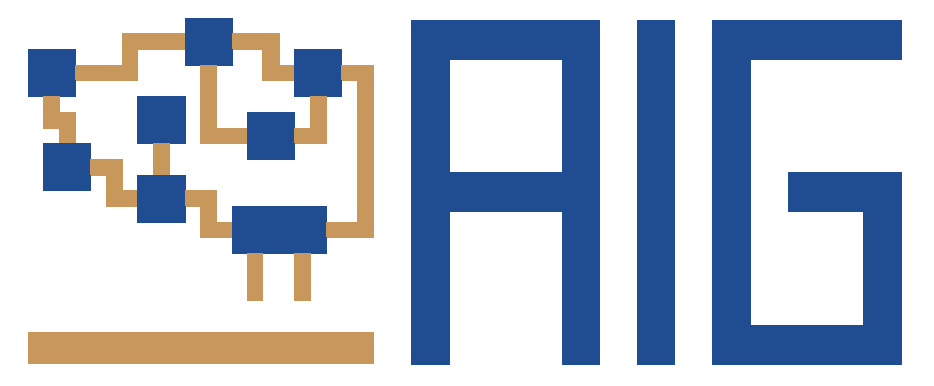OVERVIEW
The 6th Summer School on Argumentation: Connecting Argumentation (SSA 2024) will take place from 12th to 15th of September 2024 at FernUniversität in Hagen (Hagen, Germany). The school is co-located with the 10th International Conference on Computational Models of Argument (COMMA 2024).
It is the sixth event in the series of Summer Schools on Argumentation. Previous editions took place in Dundee, Scotland (2014), Potsdam, Germany (2016), Warsaw, Poland (2018), Perugia, Italy (2020) and Cardiff, Wales (2022).
The main aim of SSA 2024 is to provide attendees with a solid foundation in the basics of formal argumentation as well as insights into applying formal argumentation and connections with other approaches in AI.
The school welcomes both students and researchers in different fields not limited to argumentation, including e.g. non-monotonic reasoning, knowledge representation, logic programming, linguistics, natural language processing, philosophy, and psychology, just to mention a few of them.
The program will include courses, a doctoral consortium and a student session organized by OHAAI. The doctoral consortium is a mentoring program bringing together PhD students and senior researchers in formal argumentation. Moreover, participants are encouraged to join the student program co-organized by OHAAI.REGISTRATION
Registration for the Summer School is possible as part of the COMMA 2024 Registration.
DOCTORAL CONSORTIUM
The Summer School on Argumentation 2024 will host a Doctoral Consortium, together with OHAAI. With this Doctoral Consortium we aim to bring together PhD students and senior researchers. The aims of the consortium are:
- to promote contact among PhD students and more senior researchers;
- to support students with information and advice on academic, research, and industrial careers.
PhD-students who have a specific research proposal and/or preliminary research results and have sufficient time before completing their PhD-trajectory are invited to submit an application consisting of:
- a 1 page summary of their research, including a plan for the remainder of their PhD,
- a short curriculum vitae,
- optionally: suggestions on senior researchers with similar research interests.
Applications can be submitted via easychair: https://easychair.org/conferences/?conf=dcssa24
The deadline for submissions is August 1, 2024.
OHAAI-session
The Online Handbook of Argumentation for AI (OHAAI) focuses on ongoing PhD work on Argumentation in AI, published as an annual online open-access handbook. OHAAI is designed to serve as a research hub to keep track of the latest and upcoming PhD-driven research on the theory and application of argumentation in all areas related to AI.
A special session organized by the Online Handbook of Argumentation for AI will be part of the program. The OHAAI-session is designed for students to showcase their work on argumentation via posters and engage in a vibrant discussion on the latest advances and trends from the most recent OHAAI volume. Participants will first deliver a brief presentation on their posters, followed by a more detailed poster session. Topics can range from overviews of recent publications, initial research findings, thesis summaries, or a project open for discussion.
More information about the OHAAI-session, including submission guidelines, can be found here.
PROGRAM
Abstract: In this tutorial we show how logical argumentation provides a natural model of defeasible reasoning. We reason defeasibly whenever we infer conclusions that may be retracted in exceptional, conflicting circumstances. Nonmonotonic logics model such reasoning. It is the ambition of formal argumentation to provide a unifying framework for such logics. In this tutorial, we explain some of the core methods of logical argumentation by adopting a proof-theoretic perspective in which arguments are premise-conclusions pairs (so-alled sequents) generated by a sequent-proof calculus. We discuss how conflicts between arguments are tracked by means of various types of argumentative attacks. This gives rise to a so-called argumentation framework from which arguments can be selected following the rationale of an argumentation semantics, as defined by Dung in his seminal work on abstract argumentation. We illustrate this method by focusing on reasoning with defaults in their deontic interpretation (as norms generating obligations) and their doxastic interpretation (as applying to and generating candidates for beliefs) and discuss important meta-theoretic desiderata for argumentative models of defeasible reasoning.
Abstract: Cognitive Argumentation is a computational framework for dialectic argumentation-based reasoning, built from a theoretical framework of argumentation in AI and grounded via cognitive principles from Cognitive Science. This tutorial will cover three typical reasoning tasks: The suppression task, the selection task and the syllogistic reasoning task. Some participants' responses in these psychological experiments deviate from classical logic. We will identify these reasoning patterns and formalize them as cognitive principles in Cognitive Argumentation. Finally, we will demonstrate how cognitive argumentation can be integrated into ACT-R, a cognitive architecture, where the argumentation process is guided by the context through the spreading activation of chunks, bridging to lower levels of cognition.
Abstract: Approximation Fixpoint Theory is an algebraic framework for studying semantics of knowledge representation formalisms. It builds upon the idea that knowledge bases can be associated with operators such that fixpoints of the operator correspond to models of the knowledge base. This is an established technique in logic programming, and we will show how it can be fruitfully applied to (abstract) argumentation.
Abstract: While computational argumentation has established itself as an important subfield of AI, actual applications are few and far between. In this tutorial, we will discuss a number of applications that have been successful, contrast them with similar applications using other AI techniques, and look at what makes a successful argumentation application.
Abstract: I will give an overview of recent applications of bipolar argumentation frameworks in explainable AI. The tutorial will be self-contained and does not make any assumptions about previous knowledge, but familiarity with basic abstract argumentation ideas is helpful. I will introduce some classical and quantitative bipolar argumentation ideas and present applications in areas like explainable recommender systems, explainable decision making and explaining machine learning models.
For more info, see Social Program
Abstract: to be added

